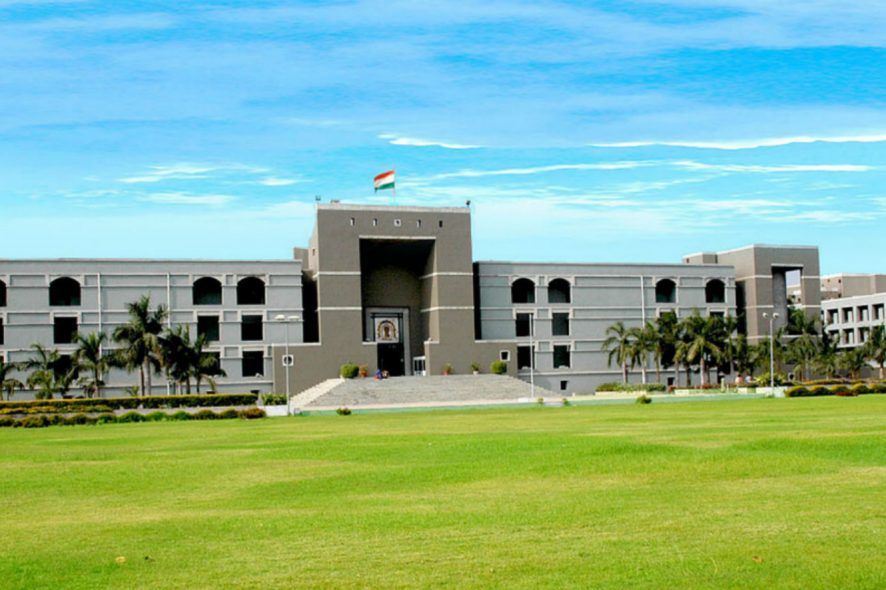Gujarat High Court: The Bench of N.V. Anjaria, J. dismissed a petition challenging the eligibility criteria in Advertisement No. RC-0719/2019 published by the respondents, for the position of Civil Judge, holding that a Deputy Manager working in the legal branch of a bank could not be treated as an employee working in the ‘department allied to Court’.
Rule 7(2)(b) of the Gujarat State Judicial Services Rules, 2005 states that the eligibility required for selection to the position of a Civil Judge. is that a candidate “must be practicing as an Advocate in Courts of Civil and/or Criminal Jurisdiction on the last date fixed for receipt of application; or must be working in the Courts or other allied Departments on the last date fixed for receipt of application.”
Petitioner herein who was working as a Deputy Manager (Law) in the real estate department of a bank, was determined as ineligible for the post of Civil Judge and his application was rejected on the ground that it did not fall within the aforestated eligibility criterion. The petition questioned the ambit of “other allied Departments” in Rule 7(2)(b) and whether it included a candidate working as a Deputy Manager (Law) in a Government Bank.
Learned counsel on behalf of the petitioner, Jenil M. Shah submitted that the petitioner had cleared the All India Bar Examination and had the license to practice as an Advocate in the courts of India. Thereafter, he was appointed as the Deputy Manager (Legal) of State Bank of India. His work description indicated that he had been dealing with all kinds of legal work, including consultation and drafting. Hence, there was no reason to exclude the bank from “other allied Departments” and exclusion of bank from the ‘list of allied departments’ as stated under Instruction 10 of the Advertisement, was unjust and arbitrary.
Learned Advocate on behalf of the respondent, Shalin Mehta, submitted that the word ‘other allied departments’ in Rule 7(2)(b) has been used in conjunction with the word ‘courts’. The categories enumerated under the head of ‘other allied departments’ in Instruction 10 were those by which only the employees associated with courts or those familiar with court work are able to apply for the post of Civil Judges.
The Court noted that the impugned instruction categorized four departments as ‘allied to Court’: (i) High Courts or any courts subordinate; (ii) Office of the Government Pleader, Gujarat High Court; (iii) Office of the Government Pleader, City Civil Court Ahmedabad; and (iv) Legal Section or Legal Department, Government of Gujarat.
It was opined that selection of eligibility conditions is within the domain of the employer or the appointing authority; and judicial review thereof may extend only to see that the norms prescribed and the eligibility contemplated are relevant and have a rational nexus with the post concerned. Reliance in this regard was placed on Chandigarh Admn. v. Usha Kheterapal Waie, (2011) 9 SCC 645.
Further, the Court relied on K.C. Vasanth Kumar v. State of Karnataka, 1985 Supp SCC 714 and applied the interpretation rule of noscitur a sociis which states that where general words follow a specific word, the general words must be confined to things of the same kind as those specified. It was opined that the categorization of ‘allied departments’ in the advertisement was aimed at inviting candidates having proficiency and experience in relation to Court. Thus, there was a balance and blend between the context and purpose of the impugned condition.
In view of the above, it was held that the petitioner was not eligible for participating in the recruitment process for appointment to the post of Civil Judge. [Avinash Detha v. Registrar (Recruitment), 2019 SCC OnLine Guj 804, Order dated 25-04-2019]






